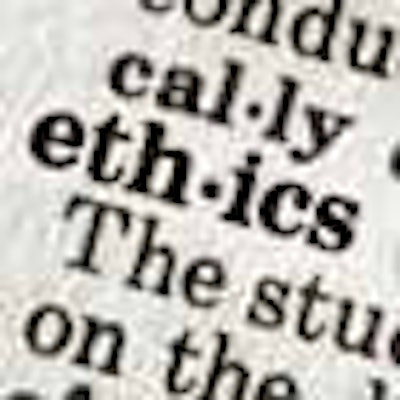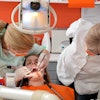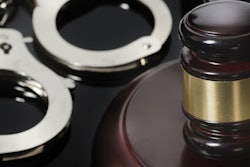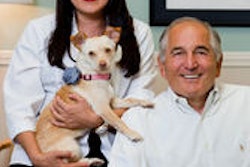
Scientific misconduct is widespread in clinical, pharmacological, and medical research, according to a review of the subject in the Journal of Dental Research (October 12, 2010), and researchers say the problem often stems from competition for funding and academic pressures.
Friedy Luther, Ph.D., F.D.S., D.Orth., of Leeds Dental Institute surveyed more than 3,000 scientists who got funding from the National Institutes of Health (NIH) and found that 16% changed the design methods or results of a study in response to pressure from a funding source and 10% withheld details of methods or results in papers.
An average of 24 cases are submitted to the U.S. Office of Research Integrity annually, according to Dr. Luther. And in a survey of NIH-funded scientists published in Nature, researchers calculated that scientists observed a minimum of 2,325 incidents of scientific misconduct per year (June 19, 2008, Vol. 453:7198, pp. 980-982).
Scientific misconduct is not new, but increasingly competitive research and educational environments are compounding the pressure on researchers and academic institutions to publish. This in turn has a substantial effect on university department funding -- a chain reaction that affects whether funding groups are willing to support certain departments.
Surprisingly, the review found very little dental-specific data. But a survey taken in 1996 by the American Association for Dental Research found that falsification of data had been observed by 30% of the 76 program chairs/association officers who responded and 54% reported having observed plagiarism at least once (JDR, February 1996, Vol. 75:2, pp. 845-855).
For scientific misconduct among dental researchers, Dr. Luther cited the case of Jon Sudbø, a Norwegian doctor and dentist who fabricated data for more than 900 subjects. His study reported on the effects of certain painkillers on oral cancer risk in smokers. An inquiry found that most of his 30 publications were invalid because of fabrication and manipulation of data. Sudbø resigned the day after a report was released about his misconduct.
Professional pressures
Domenick Zero, D.D.S., an associate dean for research at the Indiana University School of Dentistry and chairman of the school's department of preventive and community dentistry, is not surprised by the amount of scientific misconduct that occurs, saying the problem exists throughout society.
“There's no worse sin in science than scientific misconduct.”
— Domenick Zero, D.D.S., Indiana
University School of Dentistry
"People think because we're scientists we're immune, but we're subject to the same human foibles," he told DrBicuspid.com. "But being researchers and scientists, we need to be held to a higher standard because the data impact people's health. It comes down to the integrity of the individual."
Competition for funding and grants and academic pressure to gain tenure by publishing in prestigious publications are some of the driving forces involved, noted Dr. Zero, who is also the director of the Oral Health Research Institute and has been a principal investigator for several NIH grants.
"There's a lot of pressure on people because science has become extremely competitive, and universities are interested in prestige," he explained.
One way to achieve that is to have high rankings in federal funding, the most prestigious.
"For faculty to achieve tenure and promotion, you're required to be successful in scholarship," Dr. Zero said. "One way is to get peer-reviewed research published through federal or foundation funding. There's probably just as much pressure on investigators who are doing federal research because they need to get their grant renewed. There's pressure all over the place."
Industry-supported studies also are fraught with pressures, both subtle and overt, Dr. Zero noted. "Companies want to show that their product works, and there's a lot of pressure to get the results that are expected," he said.
To counter that, Dr. Zero said academics who work in university settings need to be very vigilant about avoiding bias. "We need to be the watchdogs, to maintain the integrity so that the studies we do, whether for industry or government, are scientifically sound," he said.
Dr. Zero, who serves on a committee that reviews conflict of interest complaints at the Indiana University School of Dentistry, has noticed greater vigilance of researchers at universities and government agencies. "I'm seeing movement toward greater oversight," he said. "If you publish, you're required to disclose any potential conflicts of interest to journals, but not all journals do that. You have to identify who's sponsoring it, whether it's the NIH or a company."
He has done research for several dental product companies and discloses his relationships with industry to students when pertinent. Dr. Zero also tries to avoid mentioning products unless someone asks about a specific one.
"The real way to deal with conflict of interest is transparency so people understand there's a potential for bias, and that's what we're trying to protect against," Dr. Zero said. "I try to maintain objectivity because you can't do science without objectivity."
Epidemic proportions
Much of what medical researchers conclude in their studies is misleading, exaggerated, or flat-out wrong, according to an article in the November 2010 issue of the Atlantic.
The article focuses on the work of John Ioannidis, M.D., Ph.D., chairman of the department of hygiene and epidemiology at the University of Ioannina School of Medicine and chair of the Institute for Clinical Research and Health Policy Studies at Tufts University School of Medicine.
Dr. Ioannidis, a meta-researcher who is known as an expert on the credibility of medical research, asserts that as much as 90% of the published medical information that doctors rely on is flawed, the article stated. He believes the field of medical research "is pervasively flawed and riddled with conflicts of interest" and concurs with Dr. Zero's assessment that researchers' obsession with winning funding has gone a long way toward weakening the reliability of medical research.
At every step in the research process, there is room to distort results and a way to make stronger claims or select what is going to be concluded, Dr. Ioannidis told the Atlantic. Intellectual conflict of interest pressures researchers to find whatever it is that is most likely to get them funded. To get funding and tenured positions, investigators have to get their work published in prestigious journals, which have high rejection rates, Dr. Ioannidis noted.
Digital manipulation
Furthermore, electronic methods of faking data and images are increasingly available. "It takes little imagination to see how digital image manipulation software can easily be applied to basic science research," Dr. Luther wrote in her JDR review, "but in these times of aesthetic dentistry, it can also be used in case reports and dental product manufacturer advertising."
Dr. Zero has seen a lot of image manipulation on websites, but digital forensics is increasingly being used to catch it, he said. Different lighting, the angle in which the picture was taken, and how you set up the camera can all be used for a desired effect. For example, he pointed out that teeth look darker when wet, but when they are thoroughly dried they appear whiter.
When images started to be submitted digitally, the editors of the Journal of Cell Biology noticed image manipulation occurring, Dr. Luther noted. Some 25% of authors had violated the publication's guidelines and 1% had engaged in fraud.
Based on previous reports and the 300% increase in the number of dentists being investigated for serious professional misconduct in the U.K., "it seems complacent to assume that the dental community is immune," Dr. Luther wrote.
Despite the amount of scientific misconduct cited in the review, Dr. Zero said it represents a small percentage, given the thousands of researchers and investigators now working. And misconduct occurs throughout the ranks of all professional people, including law enforcement, the clergy, and doctors, he added.
"We hope that everybody will be honest, but we have higher expectations for the professions," he said. "There's no worse sin in science than scientific misconduct."
Copyright © 2010 DrBicuspid.com



















